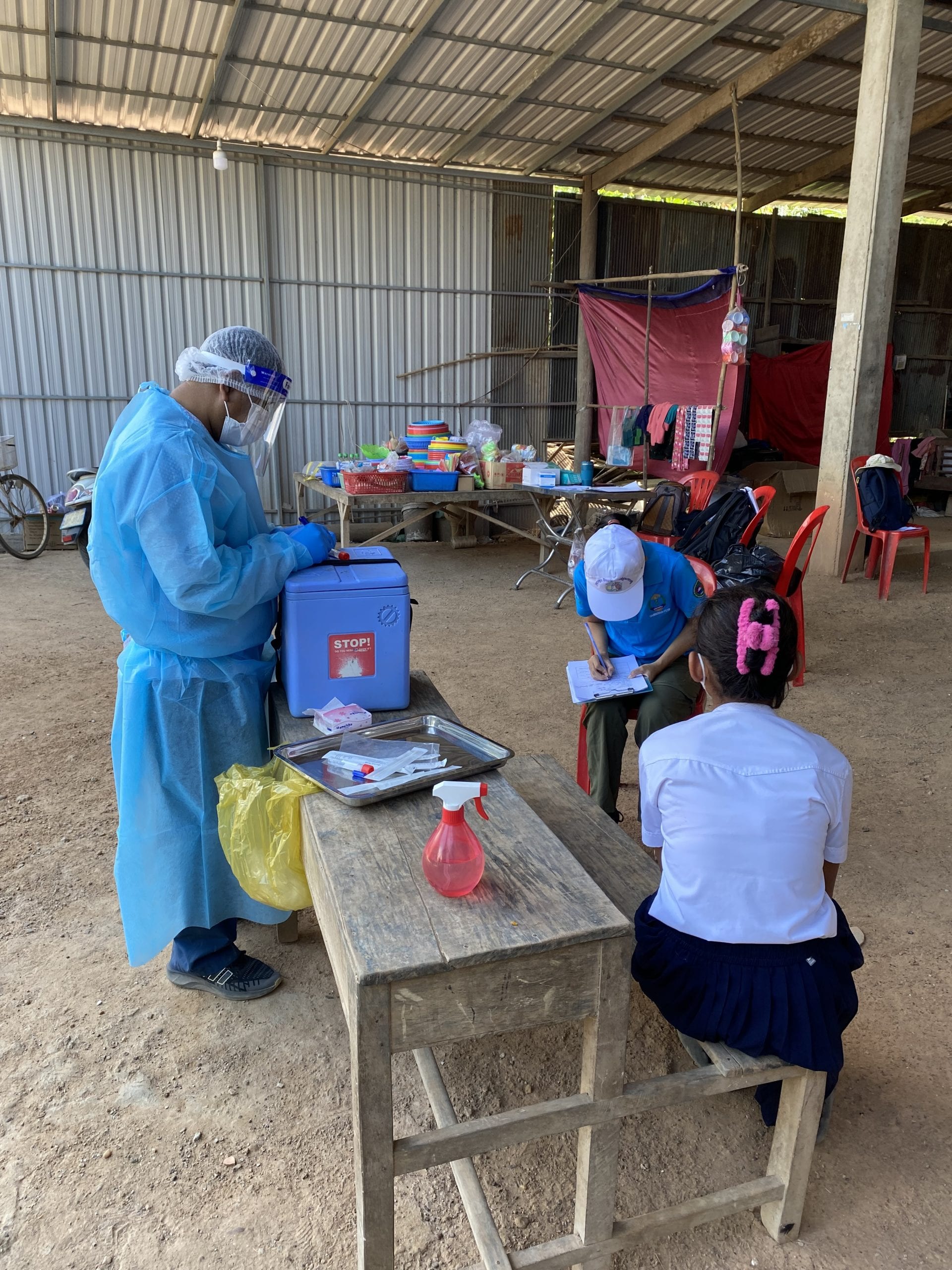At a glance
In February 2023, two H5N1 cases were reported in Cambodia, the first human infections identified in the country since 2014. CDC quickly responded to aid in comprehensive investigations that leveraged local epidemiology, laboratory, and response capacities. This ongoing work contributes to global health security and ensures countries are more prepared to respond to pandemic threats.
Enhancing pandemic preparedness through outbreak response
These reports raised global alarm as they happened against a backdrop of widespread avian influenza A(H5N1) virus infections among wild birds and poultry with sporadic spillover into mammals, including rare human infections. Detection of two infections in two family members raised concerns that person-to-person spread may have happened, which could increase the risk of the virus having pandemic potential. An investigation into the outbreak began within hours of the first infection being detected.

CDC staff arrived in the field within 24 hours to aid in a comprehensive outbreak investigation that leveraged local epidemiology, laboratory, and response capacities. Investigators quickly identified the second infection, determined that the likely source of infection was dead poultry for both cases, found no indication of person-to-person transmission, and shared information with the public.
Throughout the investigation, CDC staff in Atlanta worked to support the in-country response and contextualize the risk to the U.S. public from these two infections. Subject matter experts provided technical assistance for the epidemiology and laboratory aspects of the investigation. Communicators sought to counter misinformation by sharing accurate information for the public in the United States and for use in Cambodia.
Building on past experience
Following these first two human cases, CDC and other stakeholders worked with local officials to discuss lessons learned, which included a CDC-led regional workshop on avian influenza. Building upon experiences from the first investigation, Cambodia Ministry of Health officials and CDC staff in the region continued to improve their responses to subsequent outbreaks, including responding to nine additional H5N1 human infections in the country during the next year (February 2023-February 2024).
Impact
This ongoing work across the globe helps to build local outbreak response capacity that enables countries to respond to public health emergencies, contributing to stronger global health security and sustainable public health infrastructure.
These responses were made possible by two decades of CDC involvement in the region, including support for flu surveillance, providing financial and technical assistance, developing strong partnerships with local governments and other partners, and maintaining regional hubs, including several in Asia.
